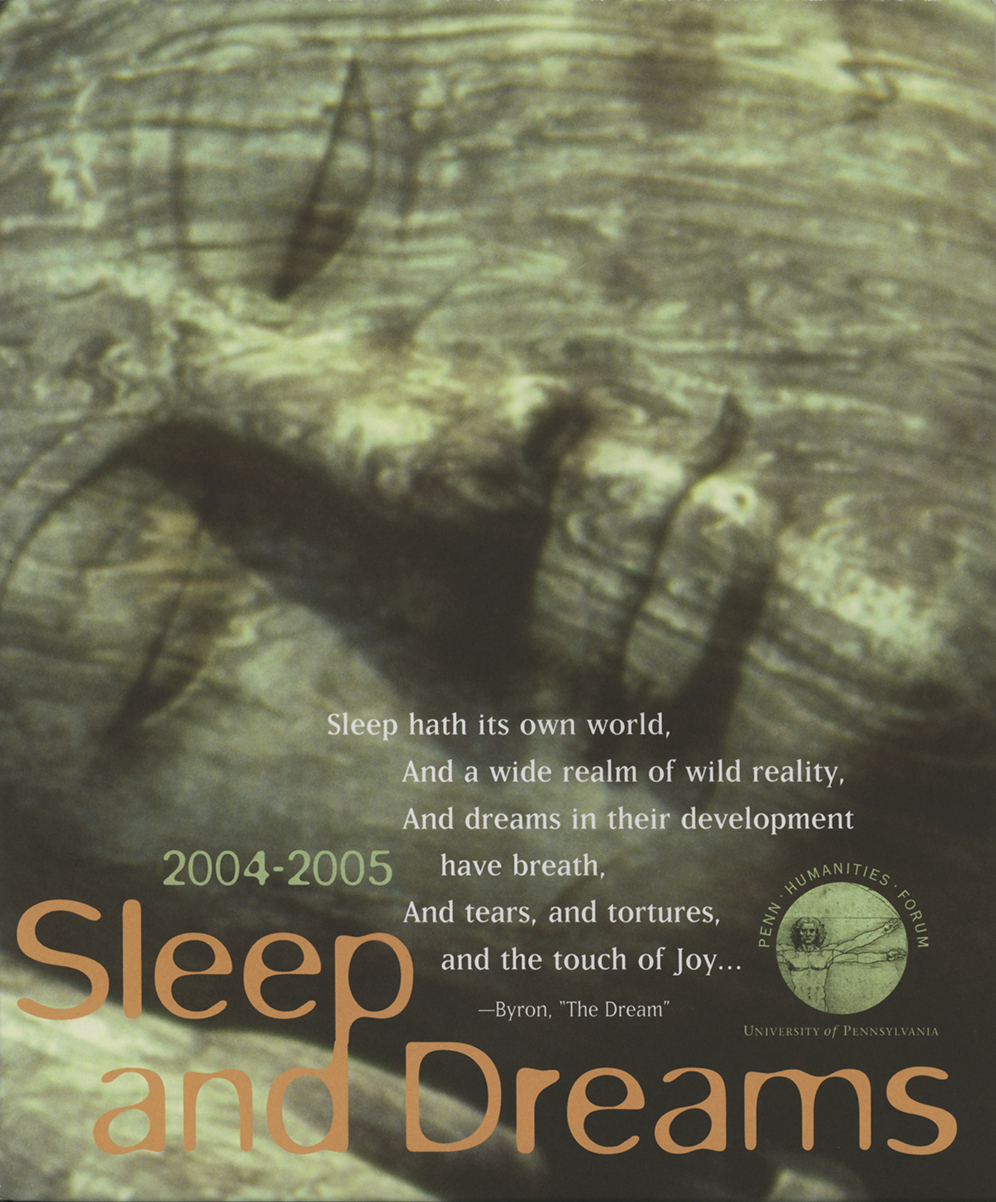Topic Director: Hans P.A. Van Dongen
Research Associate Professor of Sleep and Chronobiology, University of Pennsylvania School of Medicine
Despite the large amount of time we spend asleep, surprisingly little is actually known about sleeping and dreaming. Much has been imagined, however. Over history, sleep has been conceived as the space of the soul, as a state of absence akin to death, as a virtual or alternate reality, and more recently, as a form of (sub)consciousness in which memories are built and erased. The significance attributed to dreams has varied widely as well. The Ancient Greeks had surprise dream encounters with their gods. Native Americans turned to their dreams for guidance in life. Shamans dreamed in order to gather information from the spirits.
Sleep and dreams have defined eras, cultures, and individuals. Sigmund Freud’s interpretation of dreams revolutionized twentieth-century thought. Historical archives record famous short sleepers and notable insomniacs—some accounts reliable, some not. When Benjamin Franklin counseled, “Early to bed, early to rise, makes a man healthy, wealthy, and wise,” he was using sleep habits to symbolize his pragmatism.
Important public policy issues have arisen in our modern 24-hour society, where it is crucial to weigh the value of sleep versus wakefulness. Scientific knowledge about sleep is currently insufficient to resolve the political and academic debates raging about how much and when people should sleep. These issues affect almost everybody, from the shift worker to the international traveler, from the physician to the policy maker, from the anthropologist to the student preparing for an exam.
In the 2004–2005 Penn Humanities Forum on “Sleep and Dreams,” we concern ourselves with representations of sleep, metaphors used to describe sleep, and sleep as a metaphor in itself. How do we study dreams, visions, and nightmares in art or in life, and the approaches taken to their interpretation? How does dreaming affect the dreamer, and the resulting emotions, behaviors, and actions taken or foregone in response to dreams?
In this Forum on Sleep and Dreams, we explore how the diversity of academic disciplines can help answer important questions about sleep and dreaming—questions that may touch the basis of human intellect. The Forum is fortunate in having an expert on the psychophysiology of sleep and dreaming, Hans Van Dongen, as the Topic Director for 2004–2005. His knowledge of advances in biomedical sleep research (which is vibrant at Penn) will complement the Mellon Fellows’ cultural and historical perspectives on the subject arising from books, paintings, sculptures, movies, music, and other forms of culture.
According to Professor Van Dongen, the functions of sleep and dreams are still largely unclear to scientists. Whereas artists and humanists have long been concerned with sleep and dream states, the sciences mostly ignored it until the discovery was made that there is brain activity during sleep. It has now been documented that sleep is a necessity for health, for well-being, for the ability to think clearly—that is, for the overall quality of wakefulness. While much is known about the neurobiological underpinnings of sleep and dreams, however, the reasons behind these processes are still a mystery, and the question “what are sleeping and dreaming for?” awaits definitive answers. Under the circumstances, humanists have much to offer, not only to each other but to science as well, for the understanding of this fundamental aspect of life.
Home
2004—2005



